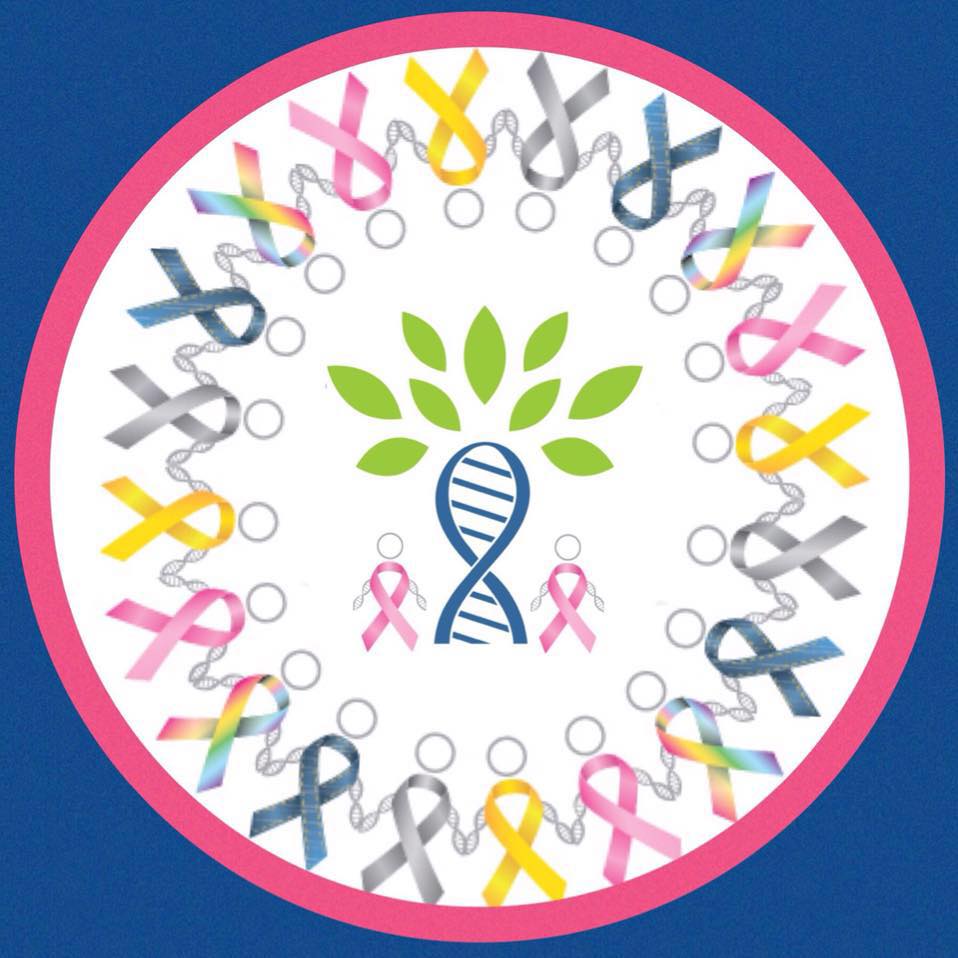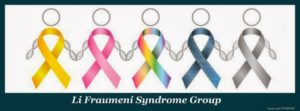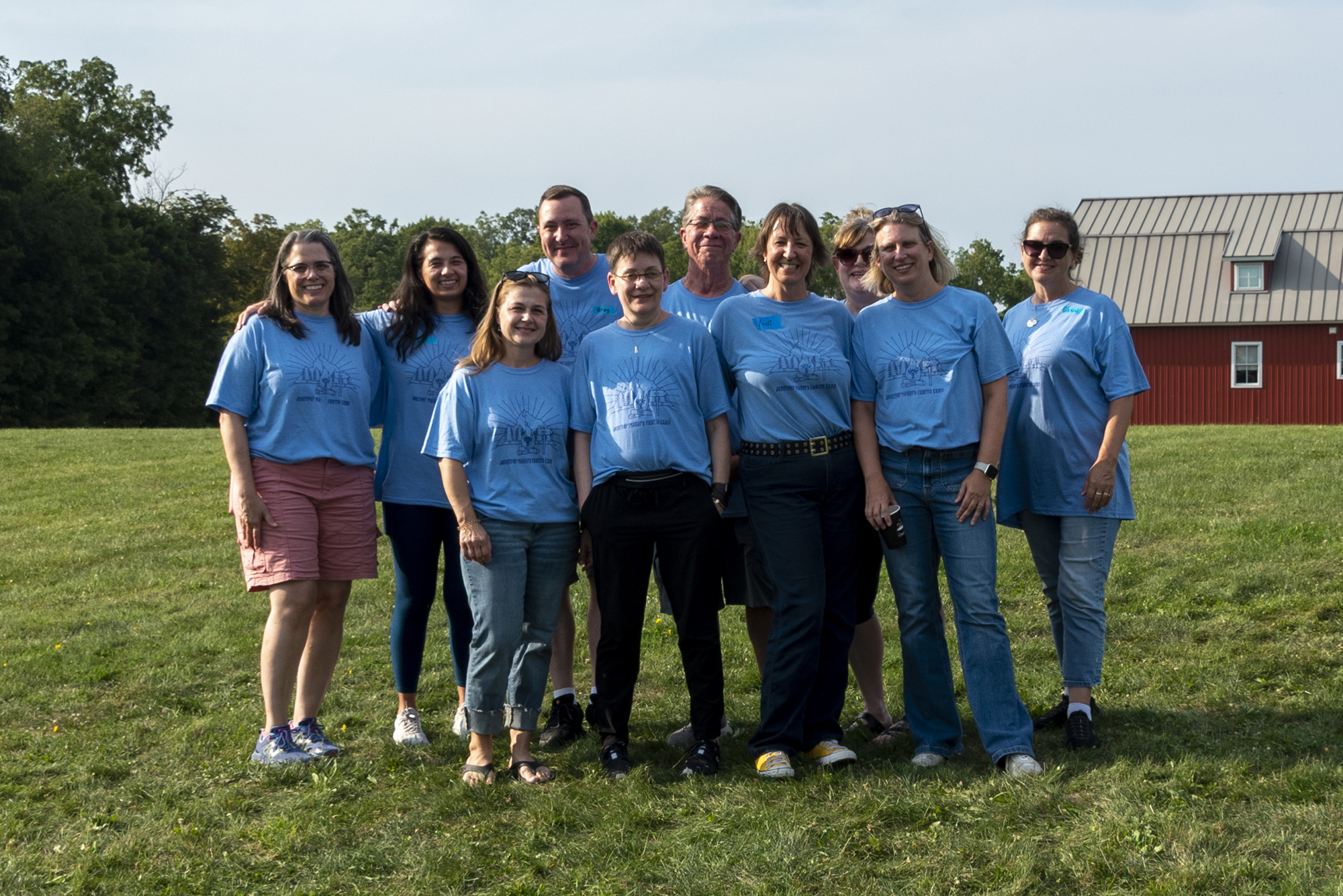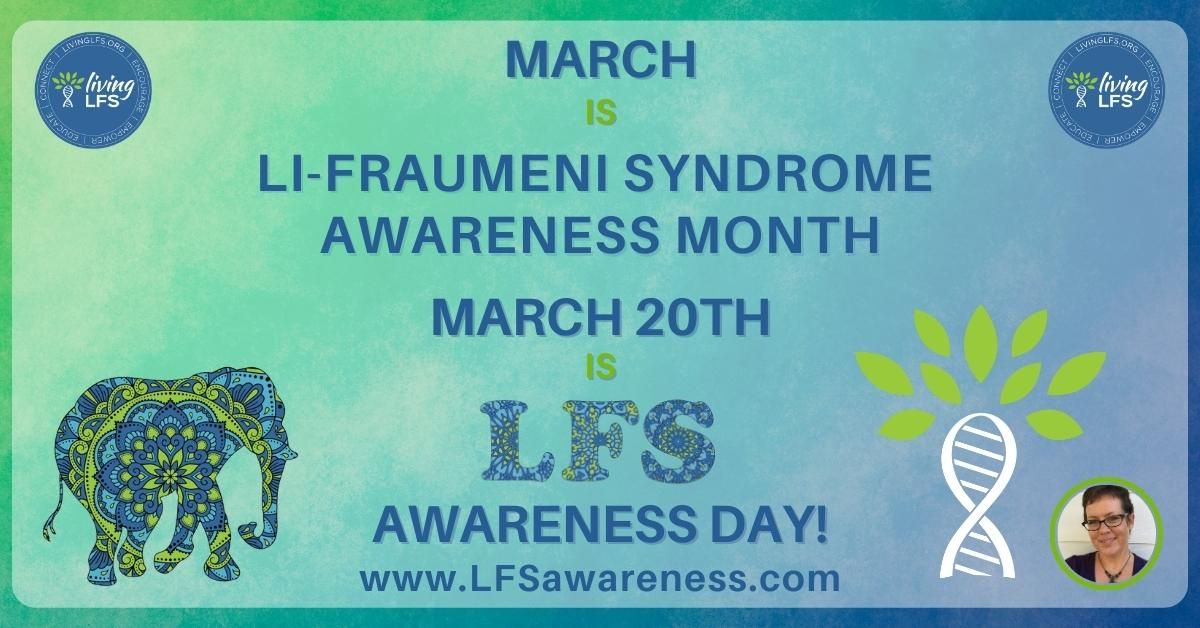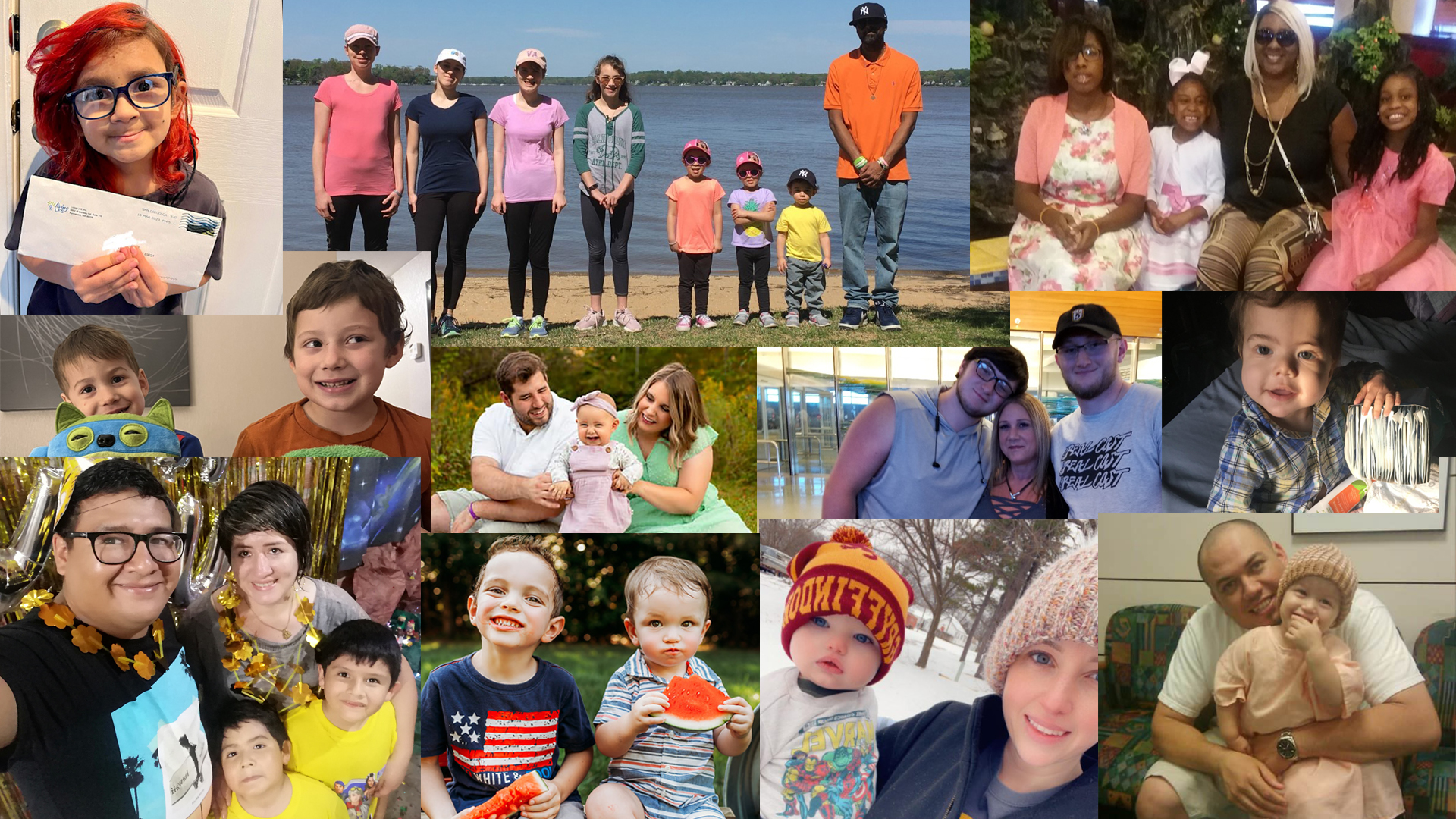October is Breast Cancer Awareness Month. Most women with LFS are very much aware of breast cancer. Breast cancer accounts for more than 40% of all LFS cancers.-The average age of Breast cancer diagnosis in LFS women is 33. In the general population- the average age of diagnosis is 61 years.
-On average 1/3 of LFS Breast cancers occur BEFORE age 30. Few occur after age 50. Which means 2/3 of breast cancers are found in the 30's and 40's. In the general population the highest risk for breast cancer occurs after the age 60.
-The majority of LFS Breast cancers are Hormone receptor(ER/PR) positive and Her2 positive. About 15-30% of all breast cancers are Her2 positive and 2/3 of all breast cancers are hormone positive.
The risk of women with LFS getting breast cancer is higher than the general population. The ages LFS women get breast cancer are significantly lower than the general population. The breast cancers LFS women get are typically hormone positive and Her2 positive, which makes them pretty angry tumors. It also makes them treatable. There are more treatment options directed towards these angry mutant positive tumors than the negative ones.
But these numbers are not the only things that set LFS women apart from the average breast cancer community. Once p53 status is known, it can potentially change your course of treatment and screening in order to limit stress to an already struggling tumor suppressing system.
Screening. To date, mammograms are the most widely used method of screening for breast lesions. Other options include MRI and Ultrasound with each one possessing limitations and benefits. The problem is that with LFS, we try to minimize exposure to ionizing radiation. The radiation exposure from mammography is relatively low- especially compared to say a CT or PET scan, but over time the amount of exposure can add up. Each women needs to weigh the risk and benefits with a trusted health professional. For more information check out the previous blog entry To Mammogram or Not to Mammogram
 |
| Radiation Free Mammograhams! |
Self Breast Exam. The single most effective and important part of a breast screening routine. It carries no risk. It has huge benefits. Many breast cancers are hormone positive, this means they feed off of estrogen and progesterone. Unfortunately these hormones are quite high during adolescence, pregnancy, and nursing. These are not times to back off on self exam. No one knows your body like you, pay attention to any changes and get a professional opinion if you find a change that does not resolve itself. Want to know more about HOW TO DO A SELF BREAST EXAM? Click HERE
Treatment. The first lines of defense against aggressive breast cancer are chemotherapy and radiotherapy. Sometimes treatment regimen use the tumor suppressing power of p53 damage to fight the cancer. If you have mutated p53- some of these therapies will not work as well and this is called chemoresistant or radioresistant. It is important to ask your oncologist if the therapy recommended has a good chance of working despite your mutant status. They may not know the answer, there may be no good data on your tumor. Whether or not you use these defenses is up to you. There are no right answers. There are mutants out there who have had success with both. It is tough enough to make treatment decisions and LFS sometimes complicates that when you hear things like radiosensitivity and secondary cancers.
Treat your cancer like you want to be treated- as an individual. Get to know your tumor. What is the ER/PR status? What is the HER2 status? How big is it? Are there positive lymph nodes? Has this treatment shown to be effective in other LFS women? There is a wealth of information online about how to interpret these, but most of all you need a trusted oncologist and geneticist who can help you wade through the information to find the treatment that is tailored to your needs, wants and mutant status. Find the treatment option that is right for you- like bras- cancer is not one size fits all- find your size. Seek out second opinions. Institutions such as the Dana Farber Institute in Boston and MDAnderson in Texas have seen many cases of LFS breast cancer and many times can recommend treatments that have been effective and can be followed through at a center near your home. This is not a one woman battle- now is not the time to go at it alone.
Sometimes the most helpful information is gained by talking to other positive women who have faced this disease. Websites such as FORCE(Facing Our Risk Empowered are geared towards women with hereditary cancer. Although most women there have BRCA mutations, the information is still helpful. Hands down- the best place to find and connect with p53 positive women who've lived with breast cancer is the Li-Fraumeni Syndrome Group on Facebook.
The syndrome may be rare- but support is not!! Let others help you find answers so you can go back to Living with LFS.
References
